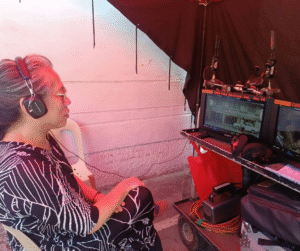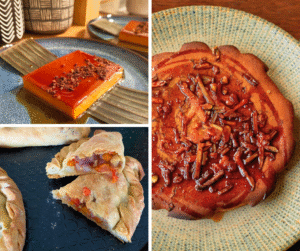By Jomel Anthony V Gutierrez
The UK remains a top work destination for many Filipinos despite its high cost of living. In recent months, some 400 Filipino butchers came to the UK to work for Cranswick Plc, one of Britain’s biggest meat producers. In July 2021, the Philippines’ Department of Labor and Employment (DOLE) announced non-health-related work opportunities in the UK, namely: auditors, accountants, linesmen, and agricultural workers.
For those working in healthcare, employment agencies in the Philippines have been processing applications non-stop for hospitals and nursing homes all over the UK. Even during the covid-19 pandemic, Filipinos were not deterred from moving here despite the strict entry protocols and tedious visa processes and requirements.
What are the hidden costs of coming to the UK? We spoke to three Filipino nurses who told us about the challenges they faced before finally settling in as nurses in Britain.
Seeking security in three countries
Aaron Eblamo worked as a nurse in Libya in 2012, even as war raged in that country. Now a registered nurse in Winchester, he ignored the danger he faced to provide a better life for his family in Mindanao. But this was not going to be the last time he entered a risky situation.

“I left Libya and moved with my family to the United Arab Emirates (UAE). We then moved to the UK after seven years.”
After the UAE, Aaron’s next challenge was relocating to the UK in the middle of the Covid-19 pandemic.
“I was interviewed and offered a job as a staff nurse for the NHS in 2019. But I was only able to take the exam in mid-2020, during the height of the pandemic,” he said.
The long delay caused him to worry whether he would indeed be able to start a new life here with his family. There was so much uncertainty that made him feel anxious and hopeless.
Aaron had to navigate a new country in the grip of a disease that was largely unknown and untamed.
“I had to quarantine when I arrived and had to pay over £1000 for the facility,” he recounted.
When his family later joined him, his wife was also hired as a nurse by the NHS.
“This is beneficial because our combined salaries are sufficient to sustain our daily needs, considering we have two kids to take care of,” Aaron said. He explained their family feels the pressure of the cost of living crisis. But the challenge is that Aaron has to send financial support to his extended family in the Philippines. For this, he takes on extra shifts (called “bank” shifts in the UK) to fulfil his family obligation.
After working for more than two years as a nurse in the UK and despite the difficulties he has gone through of coming here, Aaron is thankful for the opportunity and the support he has been given. “I am grateful. I received support from my Trust and our big Filipino community in the hospital,” he said.
The challenges of moving one’s family to the UK
For Paulina Dacudao Penales, passing several tests to qualify as a nurse in the UK was only one part of her story. Migrating to the UK with her family also meant finding decent accommodation for the family, looking for a school for her son, and helping her husband get a job.

Paulina moved to Suffolk in January 2022 after working as a nurse in the Philippines and Dubai. Her husband and son arrived three months later.
“I have dreamed of living in the UK since I was in university because I am such a huge football fan,” she said.
Paulina said that working for the NHS will give her more time to spend with family because she gets more annual leaves and days off than she had when she was working in the Philippines.
According to her, “It was not easy to pass all the exams required to become a UK registered nurse. It incurs costs and with meagre earnings in the Philippines, it was a challenge to fund the entire application process.” Apart from paying the language tests and other fees, Paulina also had to spend on transportation, accommodation, and meal expenses between Metro Manila where the exams were being held and her hometown in Bicol.

The estimated cost of becoming a UK nurse is between £680 to £850, according to George Bermudez of Filipino UK Nurse. This amount does not include expenses for meals, travel and accommodation to take the necessary tests and process the required documents to work as a nurse in the UK. Bermudez explains that some employers reimburse certain expenses such as exam fees.
Once in the UK, Paulina had to overcome another hurdle. “Passing the OSCE (Objective Structured Clinical Examination) — the last stage to become a UKRN – was the biggest challenge of all.” She had to squeeze in time to study during her break times and rest days.
After all of that, being reunited with her family was another story. “We needed a budget to find a suitable home, a job for my husband, and a school for our son,” she enumerated. Despite the new start, the family was beset by challenges posed by the current cost of living crisis.
Like many families, they have had to tighten their belts during this economic downturn. That means following a strict budget and prioritising necessities. Any other expenses, they have to carefully consider.
From working student to full time nurse
Some Filipinos initially came to the UK on student visas but were later hired as carers at private nursing homes. That was the case for Sybelle Cahanap-Leeder who moved here in 2007 to work in a care home while studying. It was at first difficult for her to adapt to living alone in a foreign country.

“When the UK opened an opportunity for student nurses, I grabbed that chance for a better life. But studying and working at the same time was a hard situation,” she lamented. “The cost of living is high in the UK, and during that time, we were only allowed to work for 25 hours. I am my family’s breadwinner and I was not earning enough,” she said.
A year after she arrived, the UK faced one of its worst economic crises, dubbed by many as the “great recession”. Sybelle learned to manage her finances.
Today, Sybelle is a mother of two and works as a full time mental health nurse at an NHS hospital in Norwich.
All three advise their fellow Filipinos to prioritise their needs over wants, to spend within a budget, and to put aside money for emergencies. In this way, they ride out this period in our collective experience.
For Filipino nurses and most migrant Filipinos, coming to the UK to earn pound sterling is a difficult journey. The pound is so much more than currency: it represents their daily struggles of working in an unfamiliar land for their families and their longing for those they hold dear back home.
About the author

Jomel Anthony V. Gutierrez is a media and communication specialist with over 15 years of experience in journalism, government service and academe. He was a former news correspondent of ABS-CBN Europe News Bureau and assistant professor at the University of the Philippines Baguio. He earned his master’s degree in media studies in the UK and currently works as a communications manager at a university.













